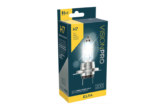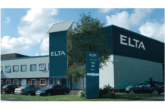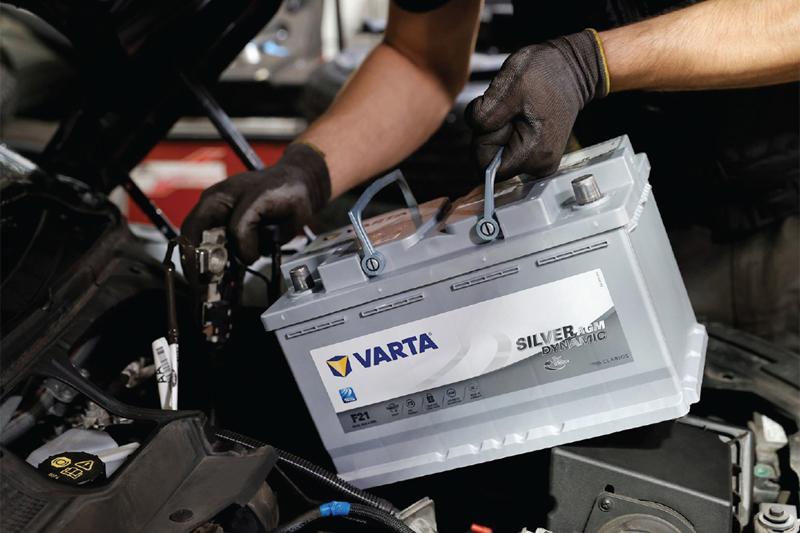
As cars become more electrified and autonomous, the traditional 12V lead-acid battery is taking on a new and challenging responsibility, according to VARTA Technical Sales Manager, Andrew Cook:
As more electric vehicles (EVs) enter the aftermarket, their emergence has intensified the demands of low-voltage power and is redefining the role of the 12V battery. What’s more, increasing levels of vehicle autonomy have driven the 12V battery to become a critical safety component.
An electric car’s high-voltage lithium-ion battery powers the drivetrain and the propulsion system, but not the whole vehicle and its electrical power net. The internal electrical 12V power net system, with its comfort and critical safety features, is powered by a 12V lead-acid battery, also known as an auxiliary battery. It works as a secondary power source for the vehicle’s electrical system and ensures that the car maintains its functionality while driving. When parked, the high-voltage battery is disconnected from the drivetrain.
Comfort and safety features, like lane assist, front assist or the occupant protection, are handled by onboard smart systems, which also draw power from the 12V net system. The same goes for most of the car’s monitoring functions, which are operated by automatic control systems. This, in turn, increases the need for a reliable, high-performance power supply.
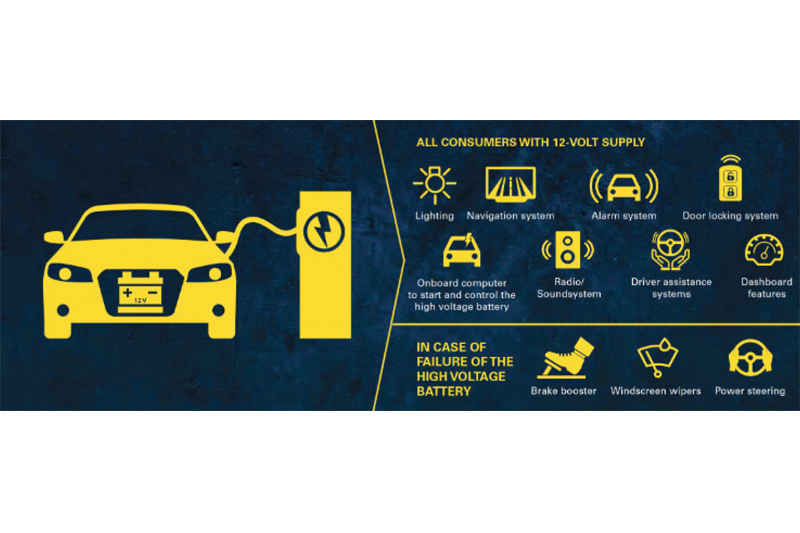
Why is lead-acid technology being used in a modern EV?
Lithium-ion technology is often considered the successor of lead-acid technology when it comes to batteries; however, it is not as inherently robust as other battery technologies and requires continuous monitoring by the battery management system. Overall, it is a very sophisticated technology.
Lead-acid batteries, on the other hand, are known to be both reliable and affordable. Their wide operational temperature window enhances the operational toughness of the entire system. The safety record of lead-acid batteries makes them invaluable for Europe’s future low-emission mobility sector. Lifecycle analysis of a vehicle’s environmental impact show that lead-acid power has a lower impact compared to other technologies.
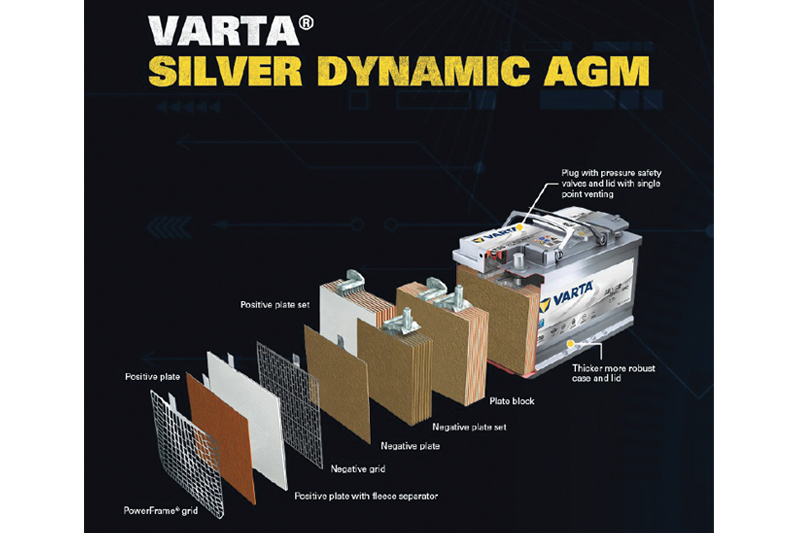
VARTA products “fulfilling all OE requirements”
VARTA AGM batteries have proven their reliability for years, making them an ideal companion in supporting the 12V electrical system of electric or hybrid EVs. Their sturdy construction and behaviour, as well as their safety, make them a reliable and robust power source.
The VARTA 12V battery portfolio is engineered to support both today’s and tomorrow’s EVs. VARTA batteries deliver energy for crucial safety systems, comfort features, and fuel-saving functions. They also have spare capacity to power vehicle systems that aren’t yet available.
Every major car manufacturer is entering the EV market with battery electric or hybrid EVs. VARTA products are fulfilling all OE requirements, which is why well-known vehicle manufacturers, such as Mercedes, Volkswagen and BMW, are fitting their cars with VARTA batteries.




